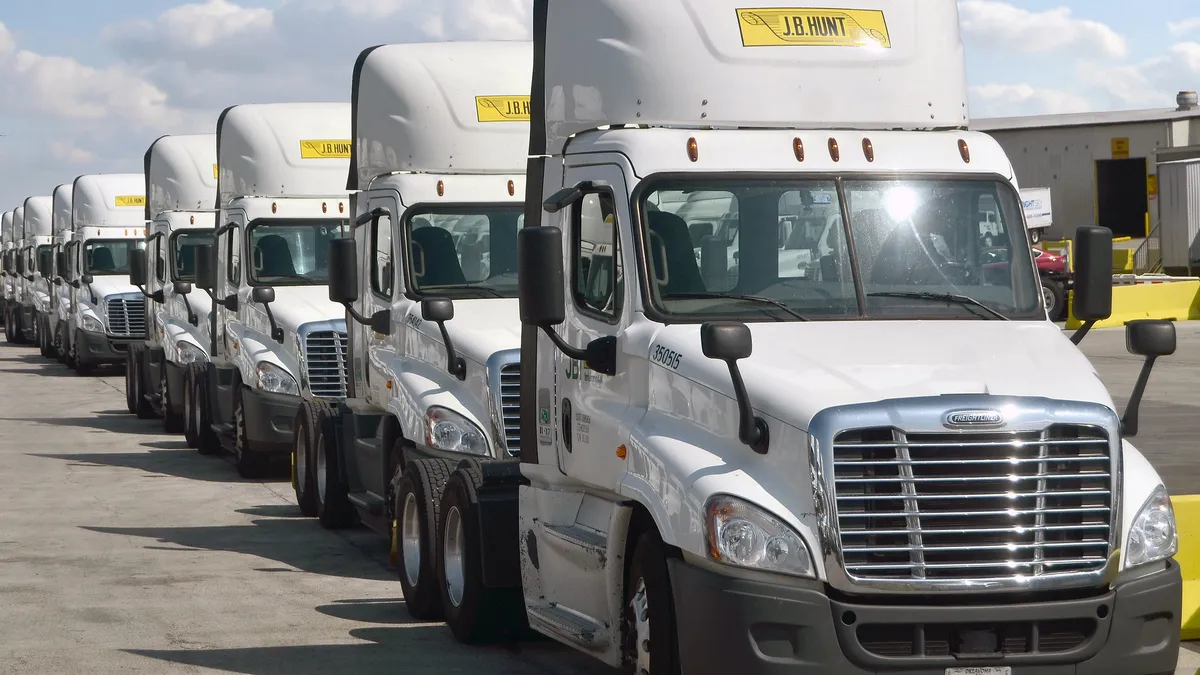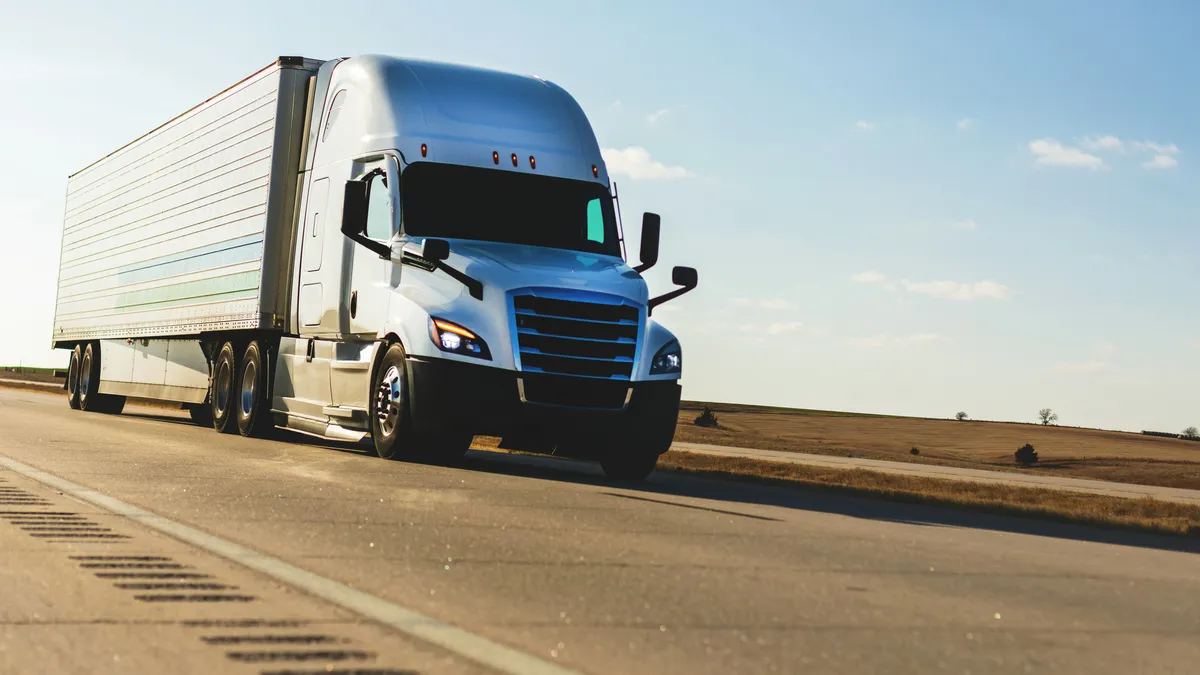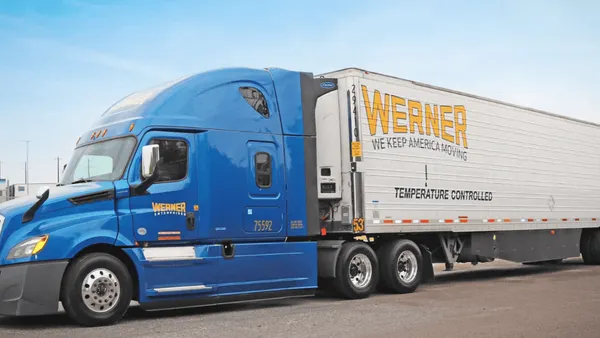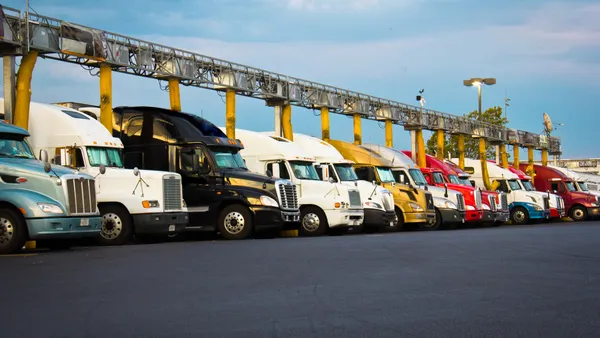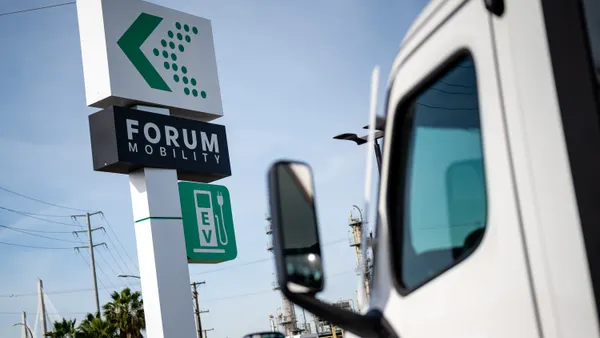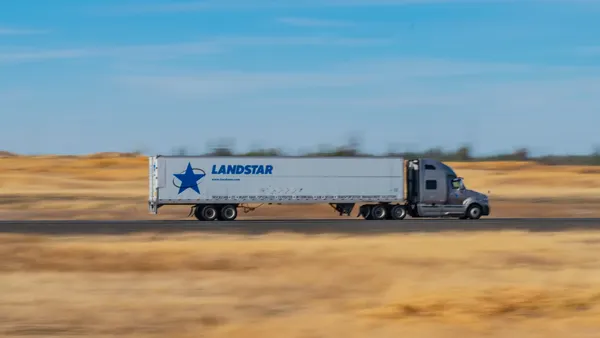Dive Brief:
- J.B. Hunt saw demand for its truckload services skyrocket after challenges with rail velocity restricted the carrier's intermodal operations, executives said on a Q1 earnings call Monday.
- Truckload revenue grew 77% YoY, the "strongest quarterly performance in the segment going back to 2005," said Brad Hicks, president of highway services. Truckload volumes rose 17% YoY as the carrier added an additional 3,000 trailers in Q1, according to the company's earnings report.
- Higher truckload revenues came as issues with rail velocity prevented the carrier from further capitalizing on high intermodal demand. "The market tightness presented our highway businesses opportunities to step in to meet customer needs," Hicks said.
Dive Insight:
Rail carriers are facing rising congestion as labor constraints affect their ability to handle a surge in volume. While J.B. Hunt reported a 7% rise in intermodal volumes over the quarter, the company is still "turning down thousands of loads per week," said Intermodal President Darren Field.
BNSF, which recently deepened its partnership with J.B. Hunt, is currently seeing delays in "freight moving off the railcars and out of our inland intermodal facilities," according to a statement to Supply Chain Dive last week. The railroad is taking steps to remove cars from its network to address congestion.
While rail constraints helped shift more intermodal volume to J.B. Hunt's trucking businesses, the carrier also noted that demand for contractual truckload services rose as spot market growth eased during Q1.
"We have seen a moderation in spot opportunities as of late, which we attribute partly to more customers shifting freight out of the spot market into published or contractual business," Hicks said. J.B. Hunt's contractual business grew more than 20%, Hicks said, while spot growth "was at the low single digits."
Fuel surcharges from rising diesel prices also helped boost revenue. J.B. Hunt collected over $446 million in fuel surcharge revenue over the quarter, close to double the approximately $230 million it collected in Q1 of 2021, according to its earnings report.
Still, labor and equipment constraints could limit future growth in the company's trucking businesses. The carrier experienced "fairly meaningful labor challenges at the start of the quarter," according to CFO John Kuhlow, particularly in its dedicated contract services business. J.B. Hunt incurred $7 million in COVID-19 costs for employees who needed time off to quarantine or get vaccinated, Kuhlow said.
Limited equipment availability is also challenging the company's efforts to add new capacity. J.B. Hunt is exploring new OEM suppliers, though challenges with semiconductor supply in the auto industry have impacted new vehicle availability.
"Our concerns remain on both equipment and labor availability, namely professional drivers as our needs for both remain extremely elevated and may ultimately got our pace of growth if demand remained or accelerates from current levels," said Nick Hobbs, COO and president of contract services.



